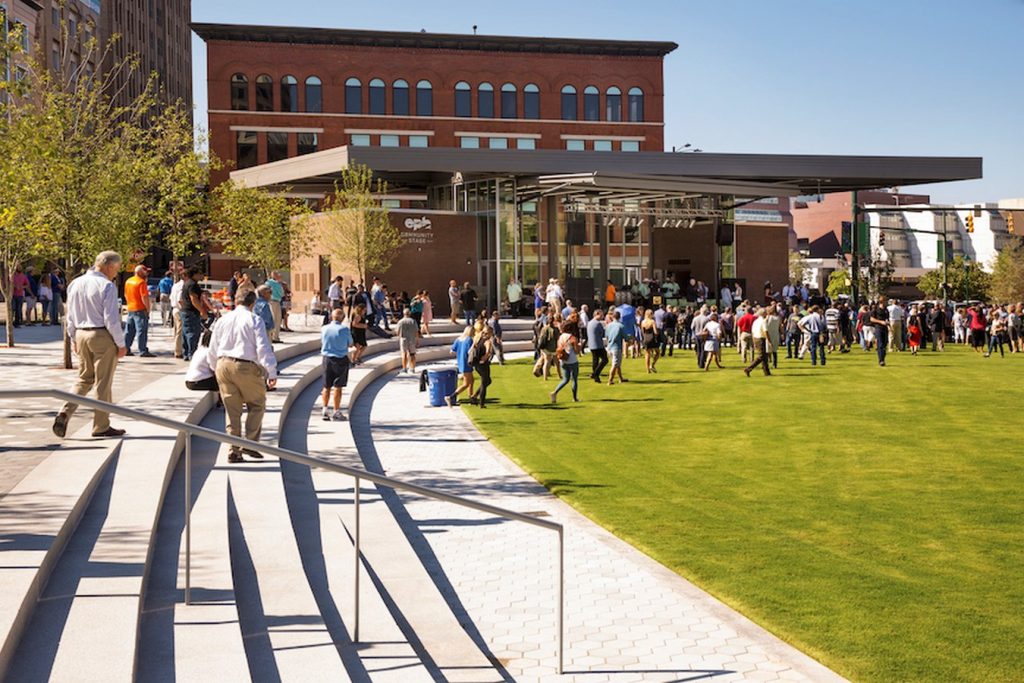Located in the heart of Chattanooga—in the center of the city’s thriving Innovation District and one block from City Hall—the transformation of Miller Park is a two-acre urban placemaking project designed and led by the collaboration firms EskewDumezRipple and landscape architects Spackman Mossop Michaels.
Miller Park
Chattanooga, Tennessee

The design challenge involved reconsidering the 1970s-era sunken plaza which, in its existing configuration, created a disconnect between city and public space. By elevating the entire park to street level and applying a “shared street approach” between Miller Park and the adjacent Miller Plaza, the team strived to create a unified civic space and encourage pedestrian traffic throughout the park.

In its flexible layout, the park plays host to numerous cultural events. Bolstered by underground internet and electricity, its state-of-the-art pavilion serves as an ideal space for immersive, technology advanced productions. Beyond its civic and social benefits, the reimagined park provides immense ecological benefits in a dense urban area. Stormwater management solutions and a strategically positioned soil cell system enables tree roots to stretch without disrupting pavement, while simultaneously cleaning pollution from rainwater.

The design team took steps to integrate the public into the design process from the outset, and over a six-month span, held numerous open meetings and online platforms for capturing and integrating community input. Such a cohesive vision might not have materialized were it not for community input. Without such input, a project of this magnitude becomes just another development, one lacking purpose and beauty. Listening to local needs and concerns played a crucial role in designing a collaborative, accessible, and energized downtown Chattanooga.

Project team
EskewDumezRipple (architecture)
Spackman Mossop Michaels (landscape architecture and prime consultant)
Hefferlin + Kronenberg Architects (collaborating architects)
March Adams & Associates (civil, structural, MEP engineers)
Matt Anderson
Principal Consultant





